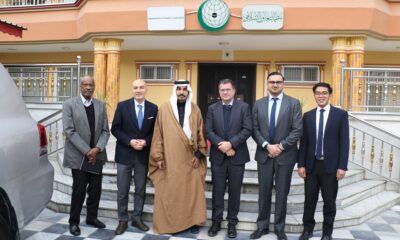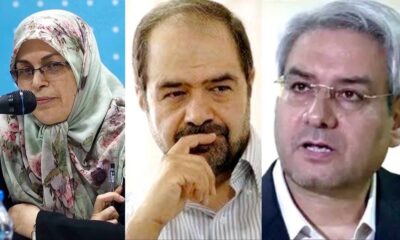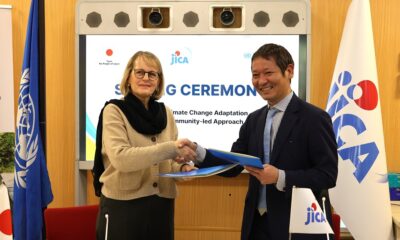Latest News
Afghanistan receives $53 million fund in 2023 for affected communities: OCHA
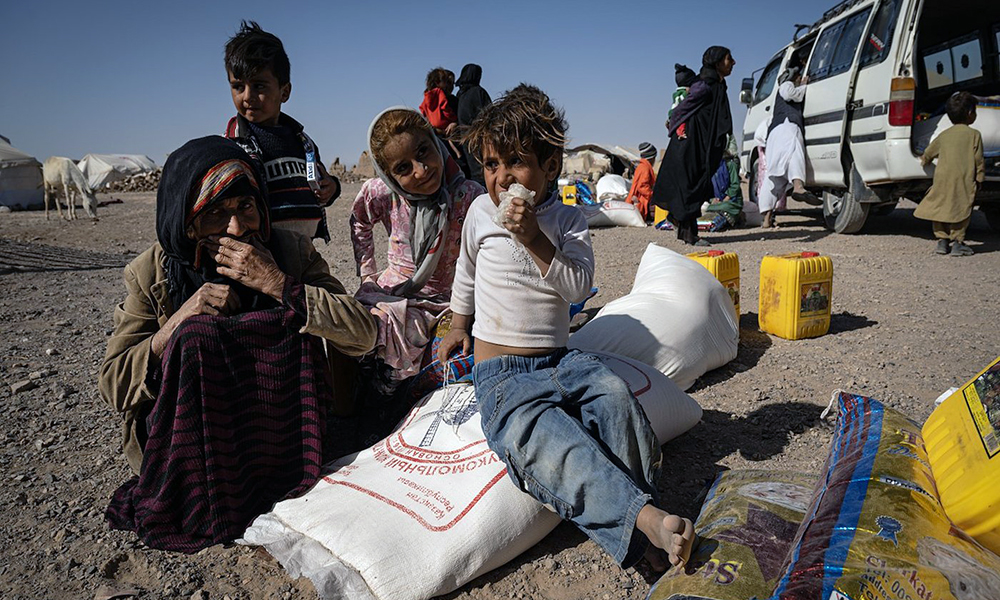
In 2023, Afghanistan received $53 million from the UN’s Central Emergency Response Fund (CERF), making it the second-highest recipient of CERF funding globally, OCHA said in a report.
According to the report, OCHA-managed Pooled Funds, CERF and the Afghanistan Humanitarian Fund (AHF) work in complementarity to maximize effectiveness and strengthen ways to deliver results for affected communities.
In March, amid some of the world’s highest levels of hunger, Afghanistan received $18 million from CERF’s Rapid Response window. At the time, a staggering 17.2 million people in Afghanistan did not know where their next meal would come from. They included 3.8 million people experiencing emergency levels of food insecurity, read the report.
With this funding, almost 390,000 people across Badghis, Daikundi, Ghor and Uruzgan provinces received in-kind and cash assistance to meet their immediate food needs and emergency resilience and livelihoods support. This helped families meet the required intake of 2,100 kilocalories per person per day, preventing a worsening of food security and malnutrition, the report added.
Since the CERF funding was disbursed, the food security outlook in Afghanistan has slightly improved; the number of people projected to experience acute hunger between November 2023 and March 2024 is down from an estimated 18.3 million to 15.8 million. The number of people enduring emergency levels of food insecurity also decreased, from 5.1 million to 3.5 million, according to the report.
In parallel with the CERF allocation, the AHF released $12.9 million to empower and build national NGOs’ capacity to deliver assistance. This makes the AHF the first Country-Based Pooled Fund to initiate an allocation dedicated to localization.
The report stated that in September 2023, with winter rapidly approaching and many programs facing disruption due to severe funding shortages, Afghanistan received a crucial $20 million allocation from CERF’s Underfunded Emergencies window.
It proved life-saving, as it helped Afghan families living in substandard and inadequate shelters, and it mitigated the heightened risks of exposure-related illnesses, including hypothermia and acute respiratory infections.
It also complemented the AHF’s largest allocation in 2023 of $109 million, released in August for multisector activities to prepare for harsh winter weather. The allocation reinforced ongoing efforts to avert the risk of famine during winter and improve people’s food security, thereby preserving the improvements made in hunger and nutrition since August 2021 due to the humanitarian system’s scale-up.
In October, a series of 6.3-magnitude earthquakes struck Herat Province in Afghanistan’s western region, killing several thousand people and injuring scores more.
The earthquakes affected some 275,000 people, with more than 40,000 homes either destroyed and significantly or moderately damaged.
To kick-start initial relief efforts, CERF allocated $5 million through its Rapid Response window. This served as a top-up to a $5 million emergency reserve allocation from the AHF that was released to partners within 24 hours of the first earthquake. This expedited allocation was pivotal in quickly delivering essential humanitarian aid to families who had lost their homes and livelihoods.
These funds enabled humanitarian partners to provide vital assistance. To date, they have reached more than 242,000 people, including 146,700 people with emergency shelter (tents), non-food items (blankets, tarpaulins, kitchen sets), cash assistance, food and nutrition items, drinkable water, protection services and winterization items, such as plastic sheets and warm winter clothes.
Following the Government of Pakistan’s “Illegal Foreigners Deportation Plan” decree, which came into effect on 1 November 2023, the UN in Afghanistan has observed a marked increase in the arrival of Afghans from Pakistan. At one point in early November, the daily influx exceeded 17,000 people, a stark contrast to the previous daily average of 260 people.
More than 80 percent of those returning are women and children.
In response, CERF provided $10 million to improve the response to people arriving at the border, providing registration services, health services, aid distribution, family unification support, child protection, psychosocial support and legal aid. These services are vital, as families endure harrowing and traumatic journeys back to Afghanistan. Many returnees have not lived there for several decades, and they have limited or no familial ties in the areas they’re returning to.
CERF’s Rapid Response and Underfunded Emergencies windows are crucial in providing essential funding to critical operations and life-saving programs across Afghanistan. They contribute to famine prevention, easing additional burdens on women and girls—from mental health risks to gender-based violence—and they support activities such as mine surveillance and clearance, emergency shelter, education and access to clean water. For thousands of families, this support is their only protection from a freezing winter.
So far this year, the Pooled Funds have allocated $188 million (CERF: $53 million; AHF: $135 million) to support and enable time-critical humanitarian action in Afghanistan, including to people affected by natural disasters and sudden-onset crises.
Latest News
Afghan border minister holds phone talks with Iran’s deputy foreign minister
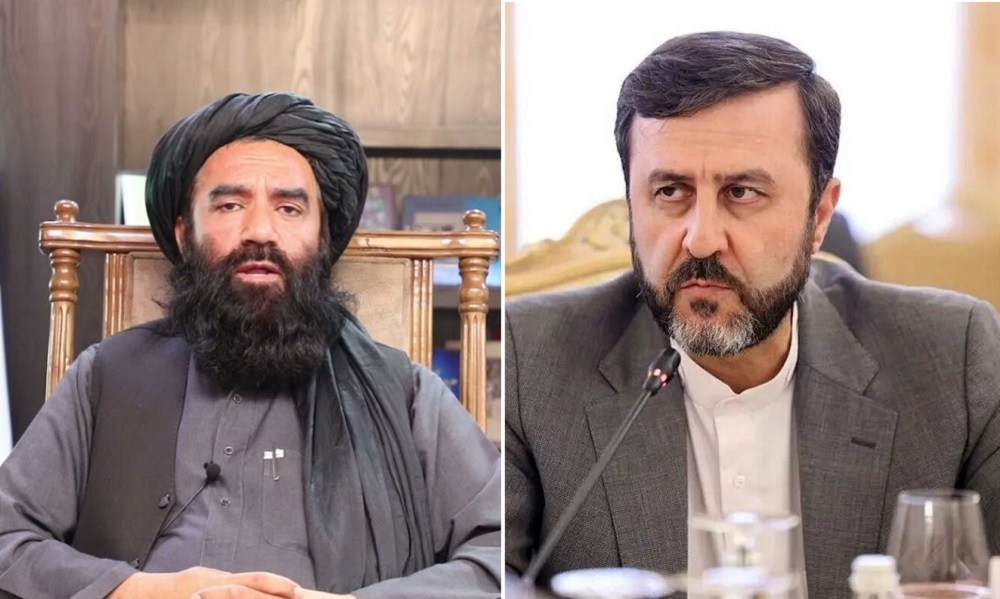
Noorullah Noori, Afghanistan’s Minister of Borders and Tribal Affairs, held a phone conversation with Kazem Gharibabadi, Iran’s Deputy Foreign Minister for Legal and International Affairs, to discuss bilateral border cooperation.
According to the Iranian news agency IRNA, both sides reaffirmed their commitment to strengthening border collaboration, with a particular focus on the ongoing renovation and updating of border markers. They also agreed to accelerate joint technical and legal meetings to enhance coordination.
As part of the agreement, the next meeting of senior border officials from Afghanistan and Iran is scheduled to take place in Iran in 1405 (2026–2027).
Latest News
OIC Kabul mission chief meets German envoy to discuss Afghanistan situation
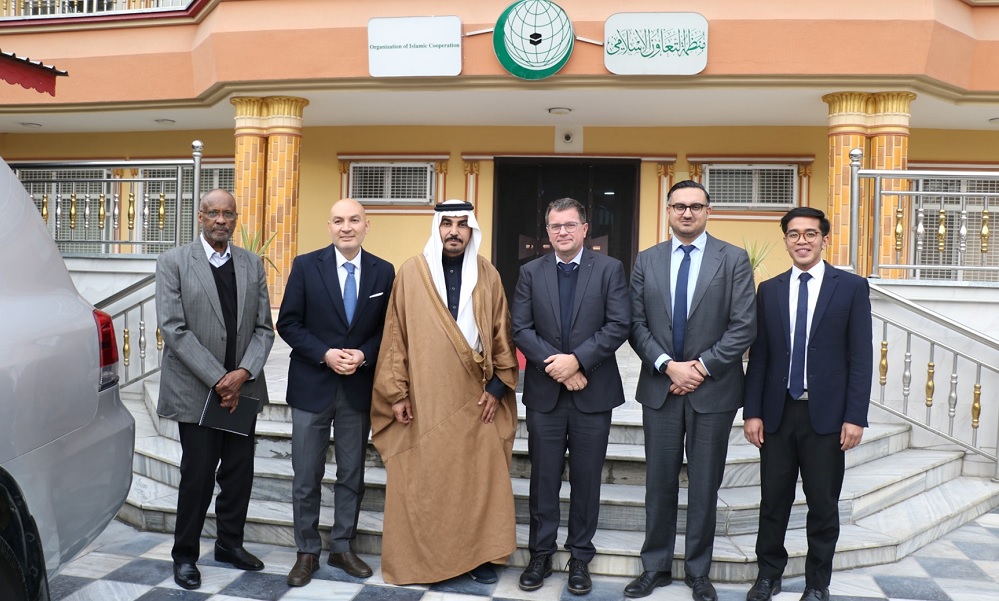
The Director General of the OIC Mission in Kabul, Mohammed Saeed Alayyash, met on Sunday with Rolf Dieter Reinhard, Head of the German Liaison Office for Afghanistan in Doha and Acting Chargé d’Affaires of the German Embassy in Afghanistan.
During the discussion, both sides exchanged views on the latest developments in Afghanistan. They focused on the security situation, as well as the humanitarian and economic conditions faced by the Afghan people.
The two officials also reviewed recent political developments and broader challenges in the country, highlighting the need for continued international engagement and support.
The meeting emphasized the importance of ongoing cooperation and coordination between the OIC Mission and the German side in addressing Afghanistan’s challenges and in supporting efforts to promote stability and improve the humanitarian situation.
Latest News
Pakistan president claims situation in Afghanistan is ‘similar to or worse than pre-9/11’’

Pakistan’s President Asif Ali Zardari has warned that the presence of militant groups in the region poses risks to global peace, and repeated Islamabad’s concerns regarding what it describes as the activities of “terrorist organisations operating from Afghanistan.”
Zardari made the remarks in a statement issued Sunday, as he thanked world leaders for expressing solidarity with Pakistan following the recent attack on an imambargah in Islamabad, which left dozens dead and many others wounded. The incident was claimed by Daesh militant group.
According to the statement from the President’s Secretariat, Zardari said Pakistan remains committed to combating terrorism and stressed that no single country can address the threat alone.
“Pakistan has long maintained that terrorism cannot be confronted by a single country in isolation,” he was quoted as saying.
Citing Pakistan’s experience, he said in the statement that whenever “terrorist groups are allowed space, facilitation or impunity beyond national borders, the consequences are borne by innocent civilians all over the world.”
Zardari further claimed that the situation in Afghanistan under the Islamic Emirate authorities has created conditions “similar to or worse than pre-9/11,” and said this has influenced security developments across the region. IEA has repeatedly rejected such allegations, insisting that Afghan soil is not used against any country.
-

 Latest News2 days ago
Latest News2 days agoAfghanistan to grant one- to ten-year residency to foreign investors
-

 Latest News4 days ago
Latest News4 days agoTerrorist threat in Afghanistan must be taken seriously, China tells UNSC
-

 Latest News5 days ago
Latest News5 days agoUzbekistan, Pakistan advance Trans-Afghan railway project
-

 Sport5 days ago
Sport5 days agoWinter Olympics finally underway, ATN to broadcast exclusively across Afghanistan
-

 Sport5 days ago
Sport5 days agoAfghanistan beat West Indies in final T20 WC warm-up match
-

 Sport3 days ago
Sport3 days agoIndonesia shock Japan to reach historic AFC Futsal Asian Cup final
-

 Sport4 days ago
Sport4 days agoMilano Cortina 2026 Winter Olympics: What You Need to Know
-
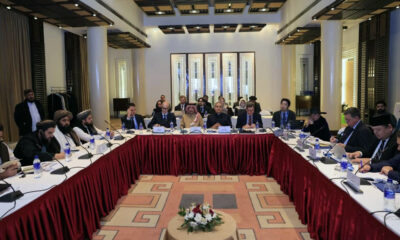
 Latest News5 days ago
Latest News5 days agoAfghanistan hosts 4th Doha Process Counter-Narcotics Meeting, highlights progress




